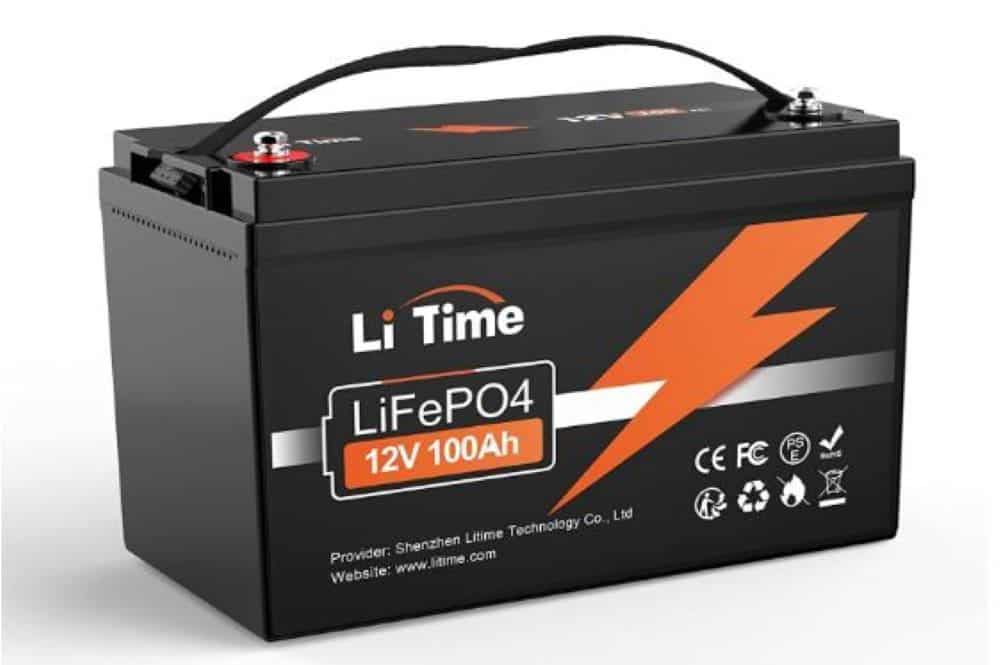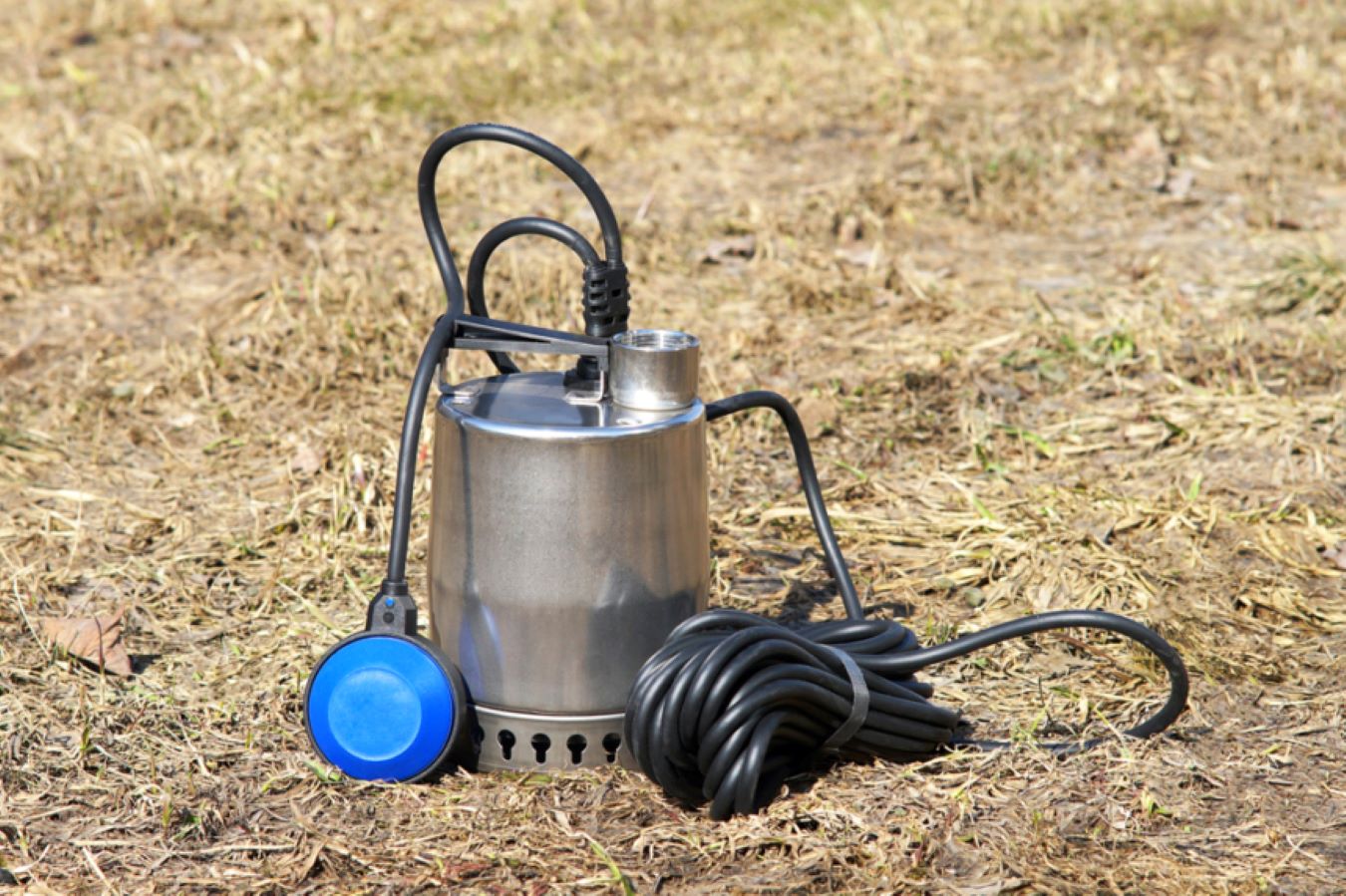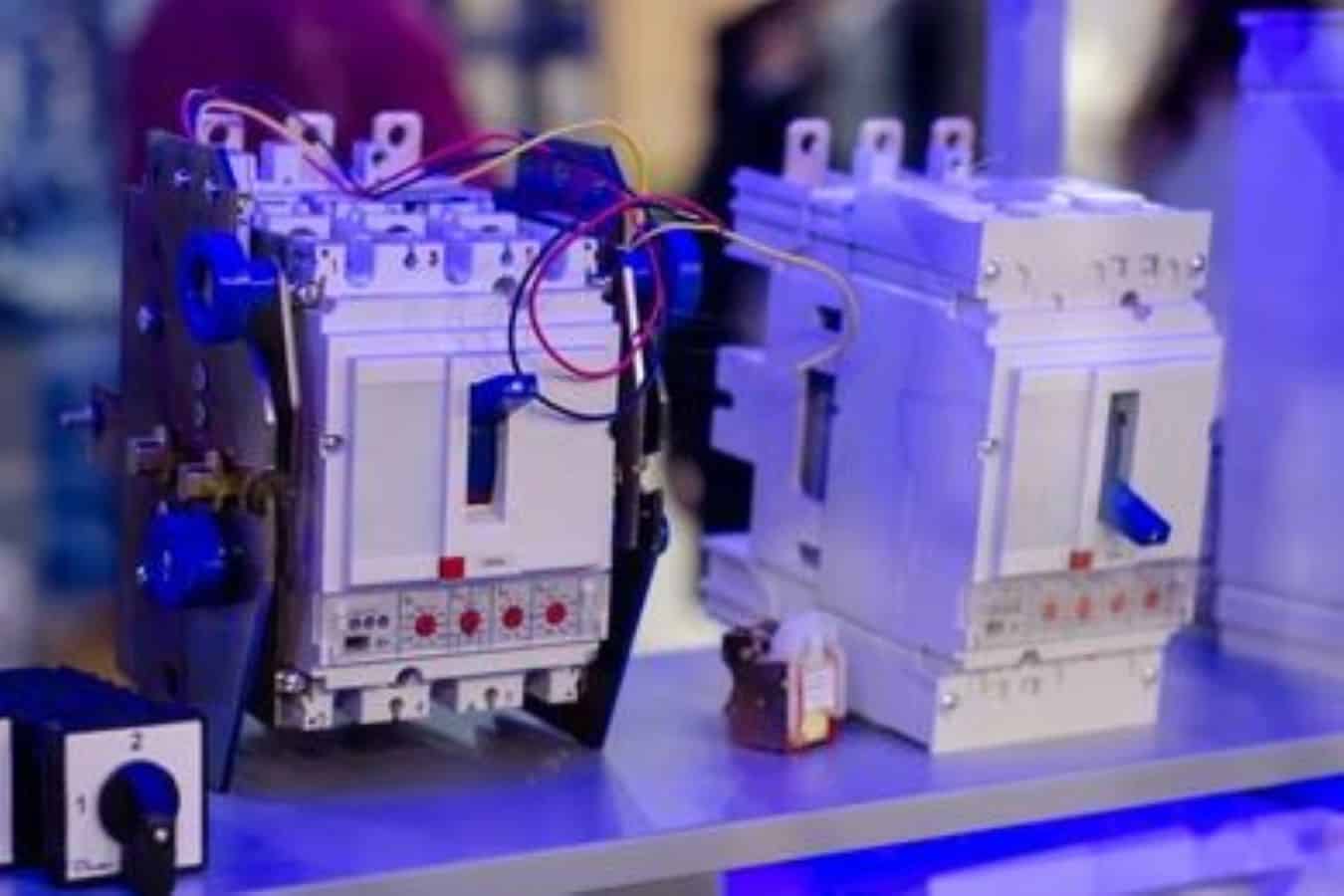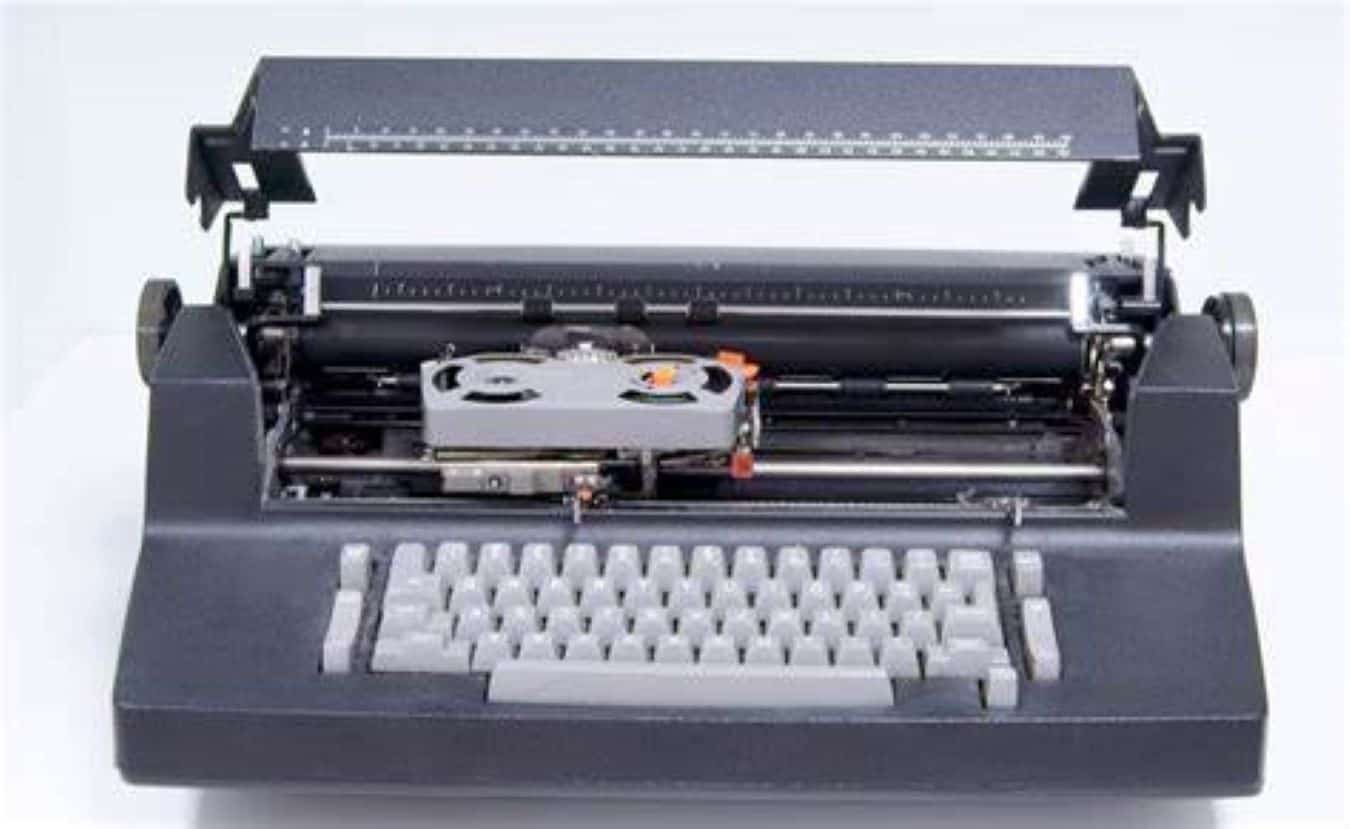Do you need a battery for your recreational vehicle? Then, read this article on the Best 12-Volt RV Battery for a guide.
This article has all the information you need to choose a 12-volt battery for your recreational vehicles.
For clarity’s sake, I will present this article in sections, beginning with an overview of batteries. Here, you will see how batteries operate.
Furthermore, the next section will contain the pros and cons of RV batteries. After which, you will see the factors you need to consider before buying an RV battery.
Then, I will compare my recommendations of the 5 best products in a table. After which, I will give details on each of the products.
However, I will list my top picks in descending order from the 5th to the best. Hence, I urge you to go for the “Ampere Time LiFePO4 Deep Cycle Battery 12V 100Ah with Built-in 100A BMS“.
Subsequently, the next section will answer some frequently asked questions on 12-volt RV batteries. Then, I will conclude with my final thoughts.
Best 12-Volts RV Battery: Overview
A battery is an electrochemical device that converts chemical energy to electrical energy and vice versa, depending on the cell type. It stores electricity for future use.
Also, a battery consists of electrochemical cells. These cells could either be rechargeable or non-rechargeable.
More so, the non-rechargeable cells are called primary cells, while the rechargeable cells are called secondary cells.
Furthermore, you can not recharge a battery with primary cells. Once the battery goes down, you discard it.
In this case, the battery only converts the chemical energy stored into electrical energy.
On the other hand, you can recharge the secondary cells. Thus, you can use it more than once.
Both rechargeable and non-rechargeable cells operate on the same principles. They consist of two electrodes (anode and cathode) submerged in an acidic solution called an electrolyte.
Furthermore, the electrolyte reacts with the anode to produce electrons around the anode, while the cathode reacts with the electrolyte to accept electrons. These electrons tend to find their way to the cathode.
However, the semipermeable barrier obstructs the movement of the electrons to the cathode through the electrolyte. Thus, leaving the external terminals and conductors as the only electron route.
When you connect a load to the battery, the electrons move from the anode to the cathode through the load. As a result, a direct current will flow through the load.
However, this reaction occurs in reverse when recharging a battery (for rechargeable batteries).
RV batteries are rechargeable batteries that power recreational vehicles. They could either be a starter battery or a deep cycle battery.
More so, the deep cycle battery could be flooded lead-acid, absorbent glass mat (AGM), gel cell, or lithium (LiFePO4) batteries.
Aside from the gel cell that has gel electrolytes, others have liquid electrolytes.
Best 12-Volts RV Battery: Pros And Cons
Pros
The advantages of 12-volt RV batteries are as follows:
- If you have two 12-volt RV batteries, you can use one to run the recreational vehicle if one of them fails.
- Also, 12-volt deep-cycle RV batteries are often more affordable.
- Even so, they are readily available.
- In addition, each 12V battery you connect in parallel adds more ampere-hours, and you can connect as many as you want.
Cons
Although 12-volt RV batteries have a lot of benefits, their drawbacks include:
- The 12-volt battery gets bigger with its ampere-hour rating. Thus, it might become heavy.
- Also, it could be less durable than 6V batteries.
- Even so, it might not fit into a small battery storage area.
Best 12-Volts RV Battery: Factors To Consider
When buying a 12-volt battery for your recreational vehicle (RV), there are certain points you need to note to get the best. These points include:
The Rating Of The Battery
The rating of the battery shows how much capacity it has. However, this battery rating is expressed in amp-hours.
Thus, it tells you how much current the battery will supply to your recreational vehicle (RV) for one hour. You can further determine the energy it provides with this information.
Nevertheless, you do not need to worry about knowing the battery’s rating. This is because most batteries come with the rating boldly displayed on them.
Type Of Battery
The types of batteries used in recreational vehicles (RVs) are starter and deep-cycle. Each of these batteries is useful for different purposes.
More so, the deep-cycle battery could be a flooded lead-acid battery, a gel cell battery, an absorbent glass mat (AGM) battery, or a lithium battery. However, flooded lead-acid batteries are mostly used in recreational vehicles (RVs).
Furthermore, some RVs, like campers and trailers, often have a single electrical system, while motorhomes can have up to two for the engine system and the coach.
Thus, deep-cycle batteries are commonly used in trailers, campers, motorhomes, etc. They have a great capacity and can provide power throughout a long camping trip.
On the other hand, starter batteries are also used in some RVs. Since you do not need to deeply discharge them, they are used in the engine electrical system in motorhomes.
In some motorhomes, the engine electrical system uses a starter battery, while the coaches’ lights and various accessories use deep-cycle batteries.
Required Maintenance
Some batteries require more maintenance than others. For example, due to the liquid electrolyte in lead-acid batteries, they need more maintenance than lithium batteries, which require none.
Thus, the maintenance of the RV battery is another point you should note. Hence, you should go for the lithium battery.
However, the lithium battery has a higher initial cost than lead-acid batteries but becomes more cost-efficient over time.
More so, lithium batteries are lighter and do not emit toxic fumes. Even so, it does not require ventilation.
Durability
The expected life span of your battery is another important point you should note. For instance, a lithium battery can last up to 10 years or more.
However, gel cell batteries and many lead-acid batteries may last 2 or 3 years. This depends on several things anyway.
Nevertheless, you need to check the warranty of the product to ensure that your battery will last a long time. Since you do not need to spend on another battery within a short period of time.
Price Of The Battery
The cost of the battery is another factor you should consider. A high-quality and durable battery is expected to be more expensive than others.
Thus, if you have a tight budget, you may need options with lower prices that might not be as durable.
Best 12-Volts RV Battery: Table Of Specifications And Comparison
| Product | Dimension | Weight | Number Of Cells | Capacity Rating | Brand |
| LiFePO4 Battery 12V, 100Ah, Up to 7000 Deep Cycle Lithium Iron Phosphate Battery | 13.07 x 6.93 x 8.66 inches | 24.2 pounds | 4 | 100Ah | SCREMOWER |
| WEIZE 12V 100AH LiFePO4 Lithium Battery | 12.71 x 6.49 x 8.34 inches | 25.6 pounds | 1 | 100Ah | WEIZE |
| CHINS 12V 20Ah Lithium Iron Phosphate Deep Cycle Battery | 6.9 x 2.9 x 6.5 inches | 5.06 pounds | 4 | 20Ah | CHINS |
| Renogy Deep Cycle AGM Battery, 12 Volt, 100Ah | 13 x 6.8 x 9 inches | 66 pounds | N/A | 100Ah | Renogy |
| Ampere Time LiFePO4 Deep Cycle Battery 12V 100Ah with Built-in 100A BMS | 13 x 6.82 x 8.48 inches | 24.2 pounds | 4 | 100Ah | Litime |
Best 12-Volts RV Battery: Product Review
5LiFePO4 Battery 12V, 100Ah, Up to 7000 Deep Cycle Lithium Iron Phosphate Battery

5th on my list is “LiFePO4 Battery 12V 100Ah Up to 7000 Deep Cycle Lithium Iron Phosphate Battery.”
The LiFePO4 Battery 12V 100Ah Up to 7000 Deep Cycle Lithium Iron Phosphate Battery is composed of lithium-phosphate. It is an excellent drop-in replacement for AGM-sealed lead-acid batteries.
Also, it is about 8 to 10 times more durable than standard lead-acid batteries. It has a 10-year service life and a 5-year product warranty.
However, it is about 50% lighter than a lead-acid battery of the same capacity. There is no memory effect associated with this battery, and you can use it irrespective of the state it is in, as soon as it is charged.
Furthermore, the battery’s flat discharge curve holds above 12 volts for about 90% of its capacity usage. This provides astronomical boosts in runtime, which is better than the 50% in lead-acid batteries.
In addition, it has a built-in battery management system (BMS) that protects it from overcharge, over-discharge, overcurrent, etc., with an excellent self-discharge rate.
It also has a built-in temperature protection function that cuts off charging below -4 oF and above 158 oF. The Battery Management System does not support series use.
Lastly, it has dimensions of 13.07 x 6.93 x 8.66 inches and weighs about 24.2 pounds.
Pros
- It has wide applications.
- Also, it has a built-in smart BMS that protects the battery against overcharging, over-discharging, etc.
- Even so, it has a temperature protection system.
- When compared with a lead-acid battery, it is lighter.
- It has a 5-year warranty.
- Lastly, it is durable, with a 10-year service life.
Cons
- Its BMS does not support battery series use.
- Also, it takes a long time to charge completely.
4WEIZE 12V, 100AH LiFePO4 Lithium Battery

4th on my list is “WEIZE 12V 100AH LiFePO4 Lithium Battery.”
The WEIZE 12V 100AH LiFePO4 Lithium Battery has a cell composition of lithium-ion. It has a capacity rating of 100 AH.
It lives over 2000 cycles at 100% and 8000 cycles at 50% depth of discharge without decreasing performance. This battery can last about 5 times longer than a lead-acid battery.
Even so, it has an automatic battery management system that protects your battery from overcharging, over-discharging, overcurrent, and short circuits. Its BMS also protects the battery from low and high temperatures for increased performance and a longer life.
Furthermore, its weight is lighter than that of a lead-acid battery with the same capacity. Also, it provides a greater energy density and is a perfect upgrade for any 12 volt deep cycle battery.
Even so, it is safe and friendly to the environment. Also, it is not prone to thermal runaway, nor will it overheat or catch fire even if it is punctured.
Lastly, it weighs about 25.6 pounds and has dimensions of 12.71 x 6.49 x 8.34 inches. It has a warranty of 10 years.
Pros
- It is durable.
- Also, it has a BMS that protects against overcharging, over-discharging, etc.
- Even so, it requires no maintenance.
- It is lightweight and versatile.
- More so, it is safe and environmentally friendly.
- Lastly, it has a 10-year product warranty.
Cons
- You can only charge it with a dedicated lithium-ion battery charger.
- Also, you can not have a connection of more than four batteries in series or parallel.
3CHINS 12V 20Ah Lithium Iron Phosphate Deep Cycle Battery

3rd on my list is “Chins 12V Lithium Iron Phosphate Deep Cycle Battery.”
This product is made of lithium metal and has a resistance of 15 nano-ohms. It has exceptional longevity and is more cost-effective.
Also, this product is safer than lead-acid batteries, which have no protection against ground faults. Even so, it supports fast charging and solar panel charging.
Furthermore, it weighs about a quarter of the weight of lead-acid batteries of the same capacity. You can safely mount it in any position with no acid in the battery.
In addition, this battery has a unique built-in battery management system (BMS) that protects it from overcharging, over-discharging, overloading, overheating, and short circuits.
It also has a low self-discharge rate that ensures up to 1 year of maintenance-free storage.
Lastly, this product weighs about 5.06 pounds and has dimensions of 6.9 x 2.9 x 6.5 inches.
Pros
- It uses lithium-ion technology. Hence, it requires no maintenance.
- Also, it has very high quality.
- Even so, it provides safety and environmental protection.
- In addition, it has a battery management system that protects against overcharging, over-discharging, etc.
- It has a 5-year product warranty.
- Lastly, it is lightweight and versatile.
Con
The BMS does not function when the battery temperature goes below freezing.
2Renogy Deep Cycle AGM Battery, 12 Volt, 100Ah

Second on my list is the “Renogy Deep Cycle AGM Battery, 12 Volts, 100 Ah.”.
The Renogy Deep Cycle AGM Battery 12 Volt 100 Ah is a flooded lead-acid battery manufactured with thick absorbent glass mat (AGM) separators. It saves you from acid leakage and frequent maintenance.
Also, it has a stable battery capacity and outstanding discharge performance between -15 degrees Celsius and 50 degrees Celsius.
You do not need to recharge the battery frequently when it is not in use since it has a low self-discharge rate of below 3%.
With its low resistance and high discharge currents of about 10 times the battery-rated capacity, this battery can power home appliances with high current ratings.
Thus, it can power up most appliances like fridges, microwaves, CPAP, coffee makers, laptops, etc.
Lastly, this product has dimensions of 13 x 6.8 x 9 inches and weighs 66 pounds. It has a 2-year product warranty.
Pros
- It requires no maintenance.
- Also, it is safe to use.
- Even so, it offers better performance at extreme temperatures.
- It has a durable shelf life.
- More so, it has outstanding discharge performance.
Cons
- The two years of the product warranty are not enough.
- It is pretty heavy.
- Also, it has no battery maintenance system.
1Ampere Time LiFePO4 Deep Cycle Battery 12V 100Ah with Built-in 100A BMS

The best on my list is “Ampere Time LiFePO4 Deep Cycle Battery 12V 100Ah with Built-in 100A BMS.”
This Ampere Time LiFePO4 Deep Cycle Battery 12V 100Ah with Built-in 100A BMS is an automotive-grade lithium battery with LIFePO4 cells of higher energy efficiency.
It has the highest level of safety based on the UL testing certificate for the cells inside the battery.
Also, this battery offers 4000 and above cycle life, which is about 10 times longer than a lead-acid battery with 200 to 500 life cycles.
It weighs approximately 24.2 pounds for one module, which is about three times lighter than a lead-acid battery with the same capacity.
Even so, it has a built-in battery management system that protects the battery against overcharging, over-discharging, overcurrent, short circuits, etc.
It charges at an operating temperature of 0 to 50 degrees Celsius and discharges at -20 to 60-degree celsius.
However, the Ampere Time LiFePO4 Deep Cycle Battery 12V 100Ah with Built-in 100A BMS is IP65 waterproof, making it suitable for indoor and outdoor applications.
It is more suitable for energy storage than a start-up.
Pros
- It is a high-quality battery.
- Also, it is durable.
- Even so, it is lightweight compared to lead-acid batteries.
- More so, it is highly efficient.
- It is waterproof.
- In addition, it has a battery management system.
Cons
- The product warranty is not specified.
- Freezing temperatures damage the battery.
Best 12-Volts RV Battery: Frequently Asked Questions
Lithium batteries are lighter, more efficient, and more powerful than lead-acid batteries, even though they cost more. However, lithium batteries are the best choice for recreational vehicles (RVs).
Absorbent Glass Mat (AGM) batteries are more durable than traditional flooded batteries. Hence, they are worth the extra amount.
Yes. You can use a trickle charger to keep AGM batteries in top condition and extend their lifespan.
Depending on the type and size of your batteries, you might need just a battery or two batteries.
You can use a 12-volt lithium battery to replace almost any deep-cycle battery with a 12-volt voltage rating.
Best 12-Volts RV Battery: My Final Thoughts
The type of battery you have in your recreational vehicle is one of the things that determines how fun your recreational activities will be.
However, it would be best that you use the starter batteries for the engine and the deep-cycle batteries for lighting and other purposes.
More so, reading the manufacturer’s manual will teach you more about how to use the battery to serve you best.
I hope this Powerversity buying guide meets your expectations. But, then, fill out the “Leave A Reply” form at the end of this article.
You may want to read other articles like this. Please visit the pages below:







